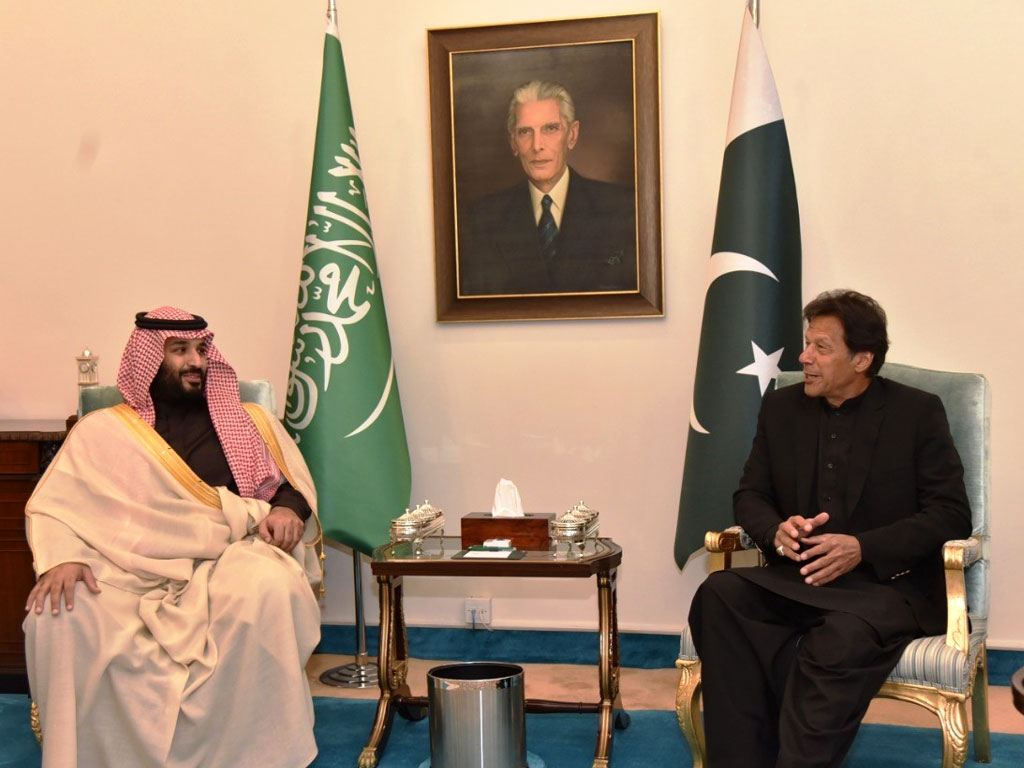Investor confidence

Prime Minister Imran Khan is reportedly going to stop over in Saudi Arabia en route to address the United Nations General Assembly with the objective of discussing the status of the pledged 20 billion dollar Saudi investment into Pakistan - a pledge made by Crown Prince Mohammad bin Salman on his official visit to Pakistan in February this year. While the Saudi Crown Prince has already delivered on his pledge to lend 3 billion dollars to Pakistan and to extend 3.2 billion dollars as deferred oil payment facility for three years in support of our balance of payment position, and has reportedly assured the International Monetary Fund board that this amount would be rolled over accounting for the approval of the Fund programme on 3 July 2019, yet investment inflows have not yet materialized. One reason for the delay could well be that investment pledges require time to materialize as feasibility studies have to be undertaken and comparisons with respect to profitability and ease of doing business with other locations determined, an exercise that includes negotiations on concessions (fiscal) with respect to incoming investment inflows.
Investor confidence is at a historically low level in Pakistan today reflected by a continuously declining industrial growth rate. Large-scale manufacturing (LSM), accounting for 78 percent share in manufacturing, 10.2 percent in Gross Domestic Product and a major contributor to exports, registered a decline of 3 percent as per the Economic Survey 2018-19, a trend that continues to this day. That the trend is not likely to reverse anytime soon is evident from the fact that both the IMF and Pakistan's economic team have projected a growth rate of 2.4 percent for the current year compared to the revised estimates of 3.3 percent in 2018-19. Clearly, a recession has set in this year where local and foreign investment is not likely to rise in the foreseeable future.
Three major factors are at work impeding local and foreign investment. First, the cost of doing business has been rising on the back of the failure of the government to deliver on its pledges to the business community in terms of ensuring that utility prices, cost of capital and fiscal measures are comparable to those of their competitors within the region. Local and foreign investors must be offered identical incentives for its healthy growth in the domestic investment climate that lures foreign investors more effectively than a prime minister or his finance minister declaring to foreigners that the time is right to invest in the country. In this context, the China Pakistan Economic Corridor projects were granted special concessions not available to local investors; and one would hope that the special economic zones to be established along the CPEC route where Chinese prospective manufacturing units are projected to be established, and where Saudi Arabia has also been invited to set up units, extend the same concessions to local and foreign investors. The IMF website after the 12 May staff-level agreement was reached stated that "the budget will aim for a primary deficit of 0.6 percent of GDP supported by tax policy revenue mobilization measures to eliminate exemptions, curtail special treatments, and improve tax administration," however, as Business Recorder has always maintained special treatment and revenue mobilization measures must be phased to ensure their successful implementation.
Secondly, the Federal Board of Revenue's unrealistic revenue target for the year has disabled it from meeting the administration's pledges. For example, it is simply not logical to insist that a turnover tax is not a tax on income while imposing a minimum turnover tax of 1.5 percent that is payable under the income tax ordinance and which is payable by a loss-making unit as well as a profit-making unit.
And finally, Pakistan's ranking in ease of doing business improved from 147 in 2017 to 136 in 2018; however, after the PTI administration took over power, the decline in growth of LSM and the scaling down of private sector small businesses due to the contracting economy has been a source of serious concern to independent economists. The perception before the elections that an Imran Khan-led government would improve governance has not yet materialized and it is unclear that the time and money spent by his Advisor on Institutional Reforms Ishrat Husain has focused on factors other than to bar the National Accountability Bureau from summoning senior bureaucrats. Change is desperately required not only in the way our bureaucracy functions but also in how the state-owned entities are being governed.
























Comments
Comments are closed.